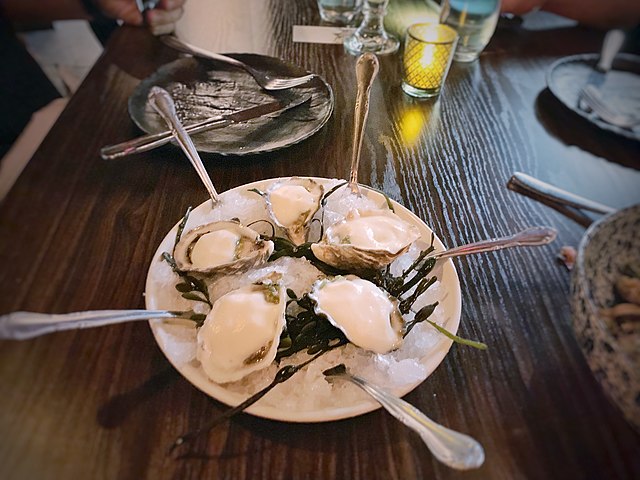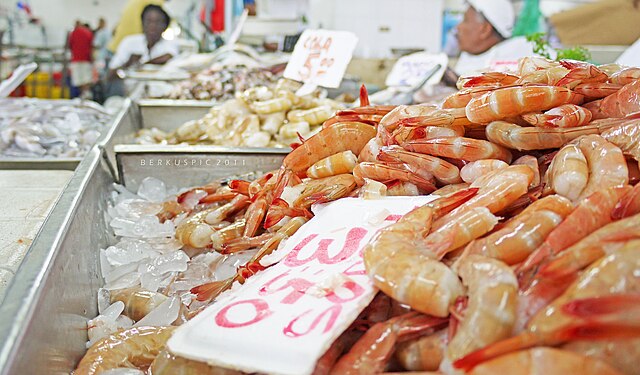The ketogenic diet has surged in popularity among health-conscious individuals aiming to maintain a low-carb lifestyle.
Similarly, seafood has become a staple for those seeking nutrient-dense and high-protein foods.
Combining these trends, many people ask, is seafood keto? This article investigates whether seafood aligns with the principles of the ketogenic diet.
It also discusses the benefits and challenges of incorporating seafood into a keto lifestyle.
What Makes a Diet Keto?
Ketosis is a metabolic state where the body shifts from using glucose as its primary energy source to burning fat.
When carbohydrate intake is restricted, the body relies on fat for fuel.
The keto diet’s macronutrient distribution limits carbohydrates to about 5-10% of daily calories, which translates to 20-50 grams of carbs per day.
The majority of calories, 70-80%, come from fats, while 10-20% is dedicated to moderate protein intake.
The main objective of a ketogenic diet is to sustain ketosis by keeping carbohydrates low and increasing fat consumption.
This approach forces the body to burn fat for energy, leading to weight loss and other metabolic benefits.
Nutritional Composition of Seafood
Is seafood keto? To answer this question, let’s look at the nutritional composition of seafood.
Seafood is a valuable component of the ketogenic diet because it contains minimal carbohydrates.
Most seafood options offer high protein levels without disrupting ketosis.
Lean fish like cod, halibut, and tilapia provide excellent protein with negligible fat content.
Fatty fish, such as salmon, mackerel, and sardines, supply healthy omega-3 fatty acids crucial for heart and brain health.
Seafood is also rich in essential micronutrients. Key nutrients such as vitamin B12, vitamin D, iodine, and selenium promote overall well-being and support bodily functions.
Is Seafood Keto?: The Best Seafood on a Keto Diet
Seafood plays a vital role in the ketogenic diet by offering low-carb, nutrient-rich options that support ketosis.
Fatty fish like salmon and mackerel are ideal for their high healthy fat content, while shellfish such as shrimp and crab provide lean protein with minimal carbs.
Oily fish like sardines are excellent sources of omega-3s.
However, it’s important to avoid breaded or fried seafood and limit high-mercury fish to ensure optimal health on keto.
Let’s look deep into the best seafood on a keto diet
1. Salmon
Salmon stands out as one of the top seafood choices for the ketogenic diet due to its nutrient-dense profile and keto compatibility.
It is loaded with healthy fats, particularly omega-3 fatty acids, which help reduce inflammation, improve brain function, and support heart health.
Salmon also provides high-quality protein, essential B vitamins, potassium, and selenium, promoting energy and overall well-being.
With zero carbohydrates, salmon aligns perfectly with the ketogenic macronutrient goals of high fat and moderate protein.
Grilling or pan-searing salmon in butter or olive oil enhances its natural fats, making it ideal for a keto meal.
Salmon’s versatility allows it to be enjoyed in various ways, from salads to main entrees, without disrupting ketosis.
2. Sardines
Sardines are an excellent choice for the keto diet due to their nutrient-dense profile and convenience.
They are packed with omega-3 fatty acids, which promote heart health and reduce inflammation.
Sardines provide high-quality protein, essential for muscle maintenance and satiety. Rich in calcium, vitamin D, and B12, they support bone health and energy production.
With virtually no carbohydrates, sardines fit perfectly into the ketogenic macronutrient requirements.
Eating sardines straight from the can with olive oil is a quick and keto-friendly option. They can also be added to salads or mashed with avocado for a healthy fat boost.
Grilling sardines with herbs and lemon adds flavor without increasing carb content. Pairing sardines with low-carb vegetables creates a nutritious and satisfying keto meal.
3. Mackerel
Mackerel is an excellent choice for the ketogenic diet due to its high content of healthy fats and minimal carbs.
It is packed with omega-3 fatty acids, which promote heart health, reduce inflammation, and enhance cognitive function.
Mackerel provides high-quality protein, essentials for muscle maintenance and satiety on a keto diet. It is also rich in vitamin D, selenium, and B vitamins, which support immunity, metabolism, and energy production.
Grilling or baking mackerel with olive oil enhances its natural fats, making it ideal for keto. Pan-searing mackerel with butter provides a rich, satisfying meal that meets keto requirements.
Pairing mackerel with leafy greens or avocado adds healthy fats and fiber to your plate.
4. Oysters
Oysters are a great addition to the keto diet due to their low-carb content and rich nutrient profile.
They are packed with zinc, which supports immune function and testosterone production.
Oysters also provide high levels of vitamin B12, essential for nerve function and energy metabolism. They are a good source of omega-3 fatty acids, which promote heart health and reduce inflammation.
With minimal carbohydrates, oysters fit well into the macronutrient structure of the keto diet.
Oysters can be grilled, baked, and enjoyed raw with lemon juice and a keto-friendly hot sauce for a simple, refreshing snack.
Pairing oysters with avocado or low-carb vegetables creates a balanced and satisfying keto meal.

5. Herring
Herring is an ideal seafood for the keto diet due to its high fat content and minimal carbs. It is rich in omega-3 fatty acids, which support heart health and reduce inflammation.
Herring provides high-quality protein, essential for muscle repair and satiety. It is also a great source of vitamin D, selenium, and B12, promoting bone health and energy production.
With its low carbohydrate content, herring aligns perfectly with the keto diet’s macronutrient goals.
Pickled herring, when prepared without added sugars, offers a convenient and keto-friendly option. Grilling or pan-searing herring with olive oil enhances its natural healthy fats.
Adding herbs, garlic, and lemon boosts flavor without increasing carb content.
6. Shrimp
Shrimp is an excellent seafood option for the keto diet due to its high protein content and low carbohydrates.
It is rich in essential nutrients like selenium, vitamin B12, and iodine, which support metabolism and thyroid function.
Shrimp also provides antioxidants such as astaxanthin, which helps reduce inflammation and promotes skin health.
Shrimp has no carb therefore, it fits perfectly into the ketogenic diet’s macronutrient goals. Sautéing shrimp in garlic butter offers a delicious, keto-friendly way to enjoy it.
Shrimp can also be grilled and baked. For more healthy fats, shrimp can be paired with avocado or drizzled with a creamy keto dressing.
7. Crabs
Crabs are an excellent addition to the keto diet due to their high protein content and low carbohydrate levels.
They are rich in essential nutrients like zinc, selenium, and vitamin B12, which support immunity and energy metabolism. Crabs also provide omega-3 fatty acids, promoting heart health and reducing inflammation.
With minimal carbs, crabs fit seamlessly into the ketogenic macronutrient framework.
Steaming crabs with butter enhances their natural flavor while keeping the dish keto-friendly.
Grilling crab legs with olive oil and herbs adds a satisfying taste without compromising ketosis.
Dipping crab meat in garlic butter provides healthy fats and complements the high protein content.
Using crab meat in keto-friendly salads or stuffed avocados offers a nutritious and balanced meal.
Baking crab with cheese or cream-based sauces increases fat content for better keto compliance.
8. Tuna
Tuna is an excellent choice for the keto diet due to its high protein content and low carbohydrate levels.
It is rich in omega-3 fatty acids, which support heart health, reduce inflammation, and improve brain function. Tuna provides essential nutrients like selenium, vitamin D, and B vitamins, promoting energy metabolism and immune function.
With zero carbs, tuna aligns perfectly with the macronutrient requirements of the ketogenic diet.
Grilling tuna steaks with olive oil enhances its natural flavors while adding healthy fats. Seared tuna, coated in sesame seeds, provides a flavorful and keto-friendly meal.
Mixing canned tuna with mayonnaise offers a quick, high-fat snack ideal for keto. Tuna salads with avocado and leafy greens add fiber and healthy fats without excess carbs.
Health Benefits of Including Seafood in a Keto Diet
The omega-3 fatty acids found in seafood offer anti-inflammatory benefits, helping to reduce chronic inflammation. This can be particularly beneficial for individuals managing weight-related conditions.
Seafood also improves cognitive function, as DHA, a type of omega-3, supports brain health.
Omega-3s in seafood contribute to cardiovascular health by regulating cholesterol levels and reducing the risk of heart disease.
FAQs: Is Seafood Keto
Is all seafood keto-friendly?
Most seafood is keto-friendly due to its low carb content. However, watch out for breaded or fried options, which may contain hidden carbs.
Can I eat shrimp on a keto diet?
Yes, shrimp is low in carbs and high in protein, making it a great option. Just ensure to pair it with healthy fats to meet your keto macros.
What is the best seafood to eat on a keto diet?
Fatty fish like salmon, mackerel, and sardines are ideal as they provide healthy fats and support ketosis.
How often should I eat seafood on keto?
Eating seafood 2-3 times per week is a good balance, ensuring variety and adequate intake of essential omega-3 fatty acids.
Can seafood cause me to go out of ketosis?
Not likely, as most seafood is low in carbohydrates. Be cautious with processed seafood that may contain added sugars or breading.
Conclusion: Is seafood keto
Seafood aligns perfectly with the ketogenic diet due to its low-carb content, healthy fats, and rich nutrient profile.
Whether it is fatty fish, shellfish, or oily fish, seafood provides numerous benefits, including inflammation reduction, cognitive support, and improved heart health.
With the right choices and preparation, seafood can play a key role in sustaining ketosis while offering diverse health benefits.
Make seafood a part of your keto journey for optimal results and nutritional variety.


Leave a Reply